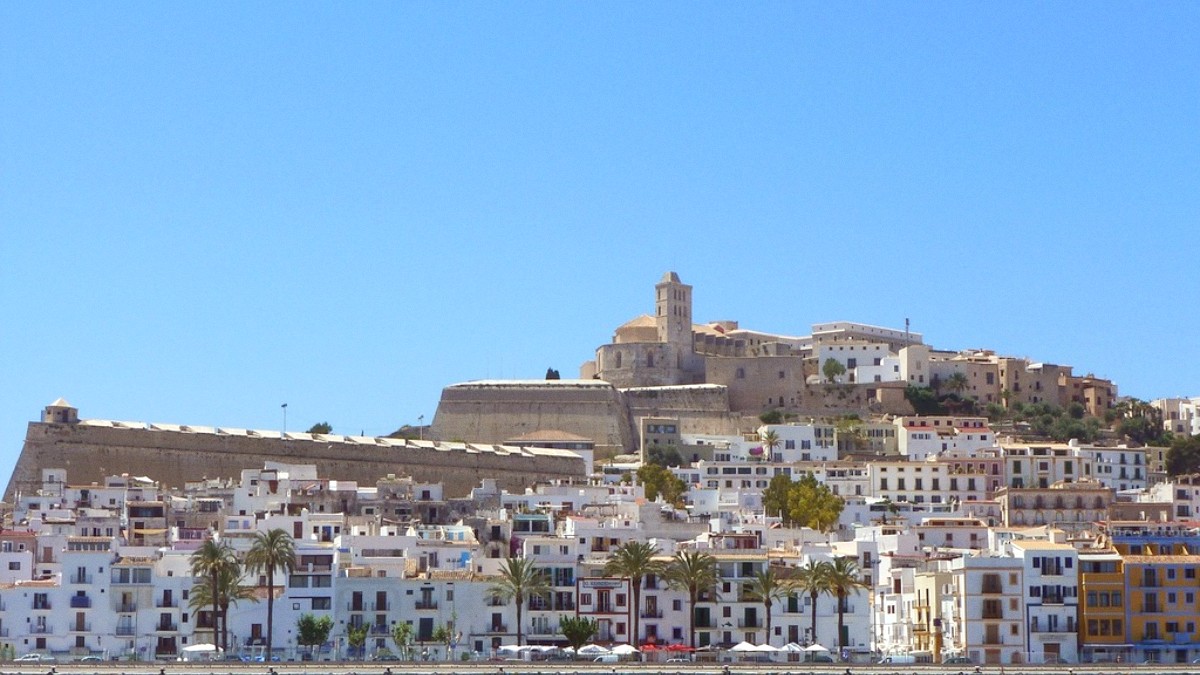
Spain
A protected natural park encompassing vast salt flats, unique dune systems, and pristine beaches, important for migratory birds.
Ibiza is surrounded by important marine reserves, protecting Posidonia oceanica seagrass meadows, for marine biodiversity and water clarity.
This iconic rock islet and its surrounding waters are part of a natural reserve, protecting unique geological formations and local flora and fauna.
Ibiza is a beautiful island that faces environmental pressures due to tourism. Mindful actions contribute to its preservation.
Ibiza has recycling bins available in public areas for different types of waste. Participation in waste separation greatly benefits the island's efforts.
Ibiza is a dry island with limited natural water resources. Conscious water use is incredibly important to ease the strain on these resources.
Opt for products and practices that minimize environmental harm, reducing waste and supporting sustainable industries.
Support brands committed to sustainability for outdoor and travel gear.
Shop PatagoniaFind reusable products to minimize your environmental footprint.
Explore Package Free ShopEngage with Ibiza's environment responsibly by following local conservation guidelines and choosing sustainable options for your visit.
Support local efforts to preserve traditional Ibizan architecture (like the white-washed Fincas), the Catalan language (Eivissenc dialect), and unique customs.
Learning a few words of Catalan or Spanish shows respect. Dress modestly when visiting churches or religious sites, and avoid making excessive noise during siesta.
While photographing public places is generally acceptable, always ask for permission before taking photos of individuals, especially children, or private property.
When visiting churches or other religious sites, maintain low noise levels, avoid interrupting ongoing services, and act with general respect.
Your choices as a traveler directly influence the local economy, supporting small businesses and island residents.
Choose locally owned businesses whenever possible, including restaurants and guesthouses.
Look for products certified as fair trade or purchased directly from local artisans.
Be aware of activities that might exploit animals or local communities.
Support local artisans and businesses, such as finding eco-friendly accommodations through Ecobnb or booking ethical tours via G Adventures.
Travel leaves a footprint; conscious decisions by visitors minimize this impact on the environment.
Consider offsetting the carbon emissions from your flights by contributing to projects that reduce greenhouse gases, a practical step to mitigate environmental impact.
When booking, seek out hotels and tour companies that demonstrate a commitment to sustainability, reducing their environmental footprint.
Reduce waste by bringing reusable items and supporting brands that prioritize sustainable practices, minimizing your consumption of single-use items.
Seek out products certified as fair trade or purchased directly from local artisans, ensuring producers receive fair compensation.
Making conscious decisions throughout your trip minimizes environmental impact and supports local communities.
Utilize recycling facilities and reduce single-use plastics during your stay.
Be mindful of your water consumption; it's a precious resource on the island.
Direct your spending towards local, ethical businesses and initiatives.
Be cautious of activities that seem to involve unethical treatment of animals or local communities. Your choices make a difference; avoid practices that degrade resources.
Offset your carbon footprint with Terrapass and consider supporting conservation through organizations like The Rainforest Site.